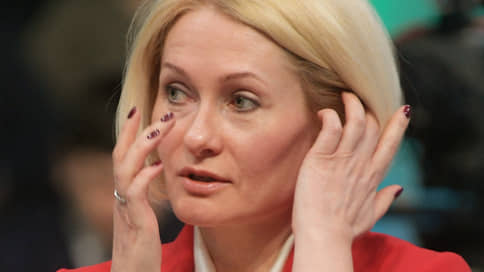“Grain” is still here – Newspaper Kommersant No. 171 (7372) of 09/16/2022
[ad_1]

The agricultural sector is divided in relation to the duty of market participants introduced on September 1 to report on all transactions with grain in the GIS “Grain” of the Ministry of Agriculture. Some companies claim that they do not experience problems in working with it or solve them during operation, while a number of agricultural producers complain that the system regularly fails and creates an excessive load, especially on small companies and farmers who are unable to keep IT specialists on staff . Opora Rossii turned to the relevant Deputy Prime Minister Victoria Abramchenko with a request to shift the mandatory use of the FSIS to the first half of 2023, so that the market has time to prepare for it, and the operator to finalize the system. This, apparently, will not happen: the Deputy Prime Minister delegated the consideration of the appeal to the Ministry of Agriculture, and he insists that “the system is working normally.”
The GIS “Grain” was put into operation in March 2022 – the Ministry of Agriculture explained its necessity by the struggle for transparency and traceability of transactions with grain on the market. According to the plans of the department, which were being prepared back in the summer of 2021, the obligation of grain producers to register all operations with it from the field to processing was supposed to be introduced from September 1, 2022. This is exactly what happened, but the mass load, according to users, caused several large-scale failures in the system, and a number of agricultural producers turned out to be disoriented by the regulatory activity of the Ministry of Agriculture itself: in the spring of 2022, it published on regulation.gov.ru a draft government decree on the shift in the timing of mandatory connection to the system for a year – until the fall of 2023 (see Kommersant of May 6).
The Opora Rossii business association recently turned to Deputy Prime Minister Victoria Abramchenko, who oversees the agro-industrial complex, with a letter signed by the head of the business association Alexander Kalinin (Kommersant has it), in it, with references to mass appeals of farmers and data on system failures, the request is argued also to shift the deadlines for introducing their obligation to register transactions with grain in the FSIS to the first half of 2023. It should be noted that earlier experts stated: after the work on the fight by the Federal Tax Service for paying VAT, the grain market is sufficiently transparent, and there is no big rush to fully control the movement of grain in the country – the only threat to the market was the flow of grain consignments to Kazakhstan (freedom of movement of goods in the EAEU made its export from there more profitable than from the Russian Federation, due to the absence of a floating export duty). However, the office of Deputy Prime Minister Victoria Abramchenko told Kommersant yesterday that they received an appeal from Opora Rossii in connection with the situation with the Federal State Information System Zerno, and the Deputy Prime Minister instructed the Ministry of Agriculture to “consider the association’s appeal and work out the messages of system users”: to achieve a transfer the market, apparently, will fail. In the Ministry of Agriculture itself, Kommersant was told that since March, the FSIS Zerno “for a more comfortable adaptation, manufacturers were given the opportunity to upload data in test mode,” that is, the market had time to prepare.
As for the project of the same Ministry of Agriculture, which confused the farmers, to postpone the requirements for a year, according to Kommersant’s interlocutors in the White House, neither to the relevant Deputy Prime Minister Victoria Abramchenko, nor to the Deputy Prime Minister in charge of control and supervision activities and the head of the government apparatus, this project did not rise along the administrative vertical. When revising the list of mandatory requirements, which are introduced from September 1 and which were subjected to a double audit by the subcommittee on CND of the government commission on administrative reform – on their own initiative and on behalf of the president (see Kommersant of August 18), the proposal to shift the requirements for a year did not was supported by the same Ministry of Agriculture within the profile working group “Livestock and crop production.”
As explained in the ministry, the issue of refusing to postpone the launch of the mandatory stage of the system’s operation was resolved after a discussion “on the government’s platform”, as a result of which “it was decided to keep the originally planned date – from September 1, 2022.” Now FSIS “Grain” “works as usual, allowing businesses to work effectively in a transparent market, and the state to counteract illegal import and circulation of products,” the department says.
We note, however, that in recent history there are examples of successful opposition of business to the introduction by the White House of new obligations to provide market data: mass complaints about the impossibility of working with the GIS housing and communal services of the Ministry of Construction (see “Kommersant” dated April 25, 2017) forced the department to soften the requirements, change the operator of the system and greatly modernize it (see Kommersant dated July 14, 2021). This situation is also familiar to Ms. Abramchenko herself: problems during the launch also arose in the LeSEGAIS system located in her area of responsibility (see “Kommersant” dated December 27, 2021 and January 17, 2022) – then market participants were saved by the unwillingness to control electronic declarations for timber the inspectors themselves.
[ad_2]
Source link






